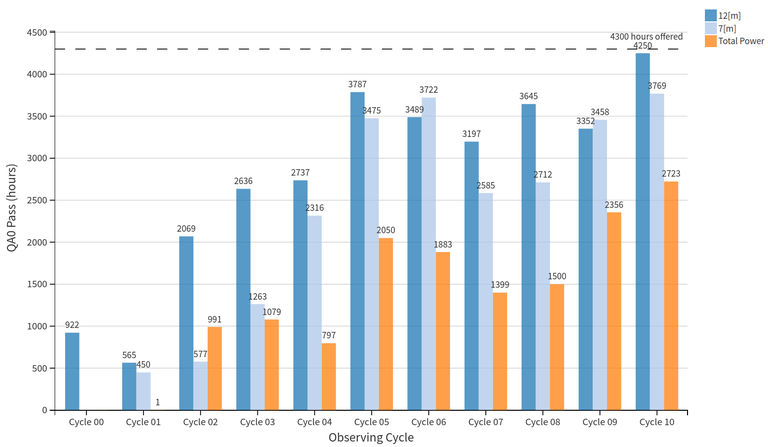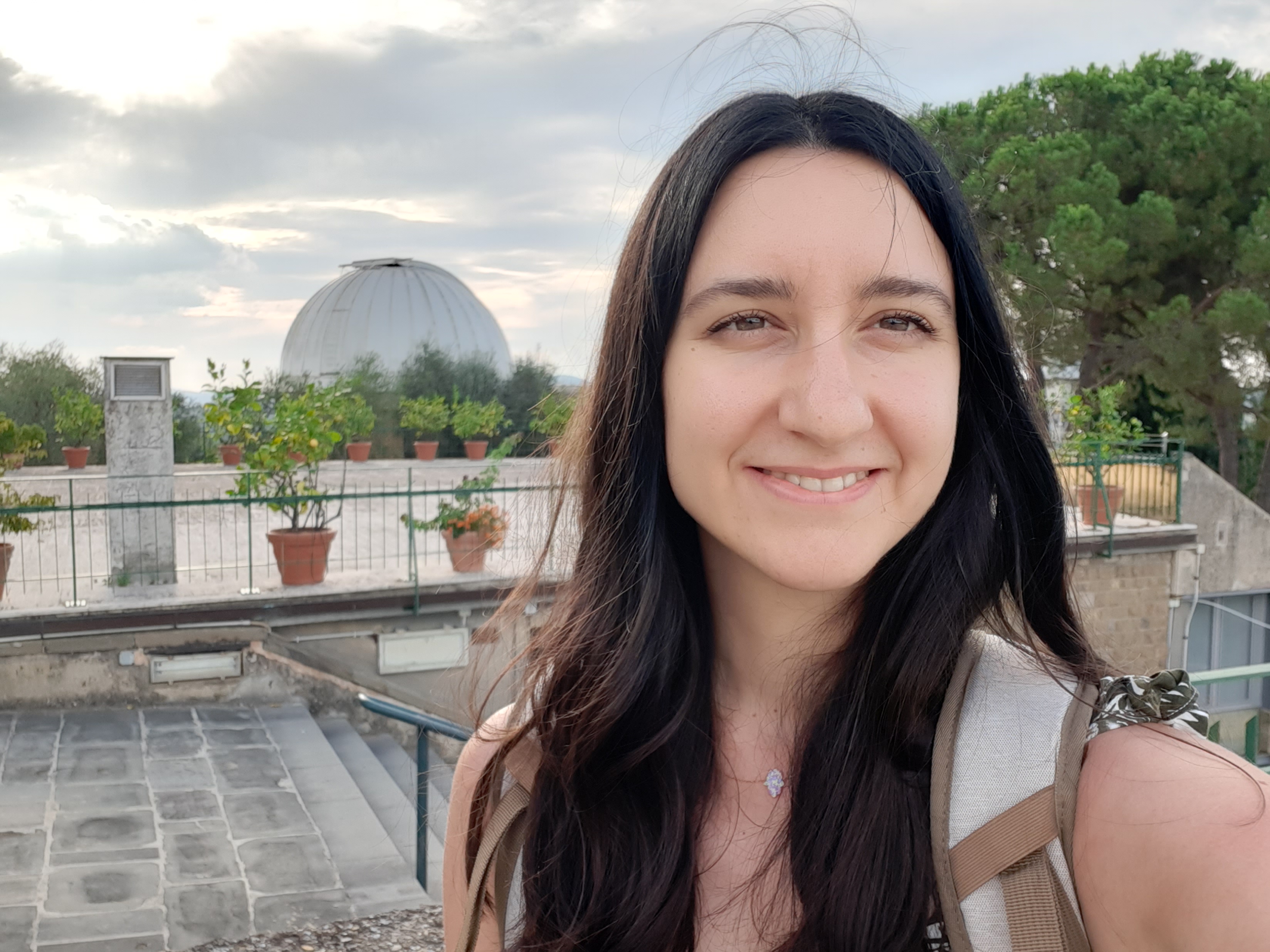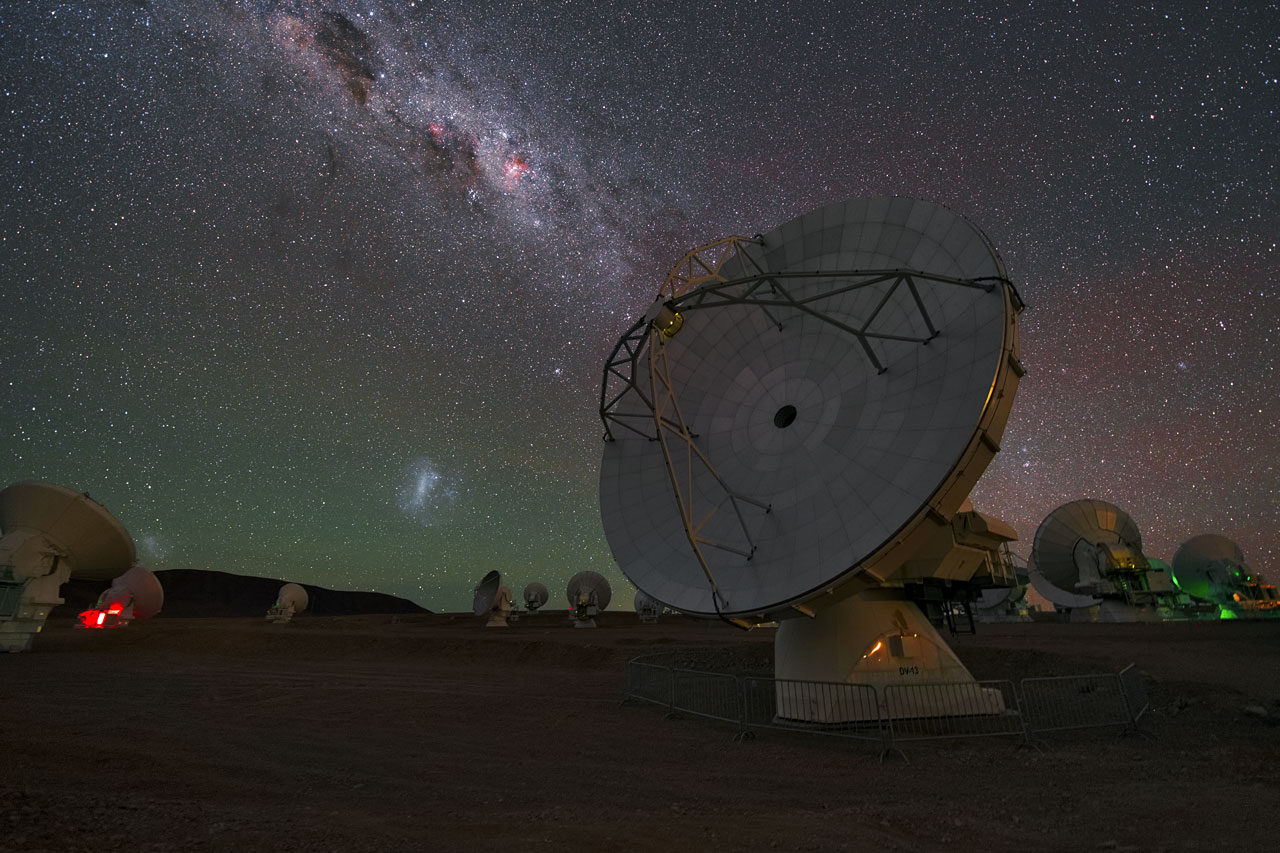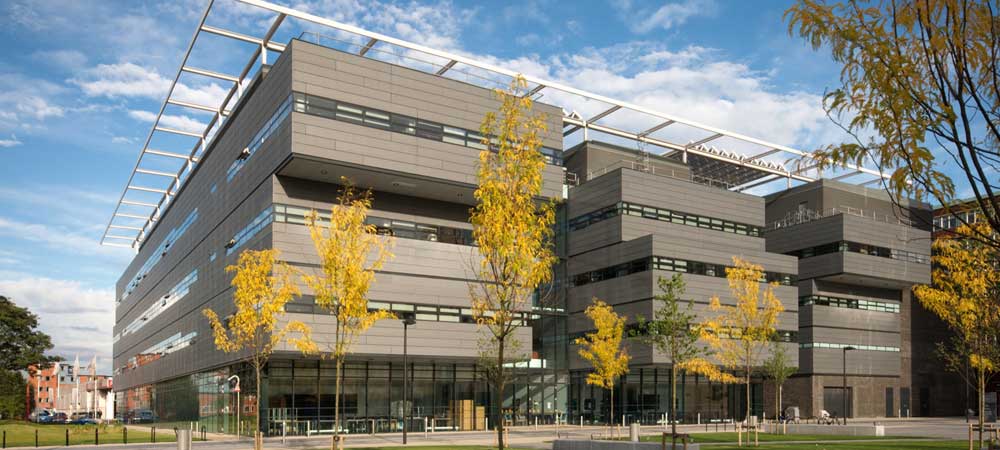Announcements
Record Number of Observing Hours in Cycle 10

At the conclusion of Cycle 10 at the end of September, the ALMA 12-m Array had acquired a total of 4250 hours of observations. This achievement greatly surpassed the previous record of 3787 hours of data acquired during Cycle 5. Additionally, the 7-m Array set a record of 3769 hours of data taken, and the Total Power Array set a record of 2723 hours of science observing. Special recognition has been given to the efforts and dedication of the ALMA staff for this achievement.
Şeyma Mercimek Joins the UK ARC Node

Starting in late October 2024, Şeyma Mercimek started a new position at the Jodrell Bank Centre for Astrophysics where she will be devoting 30% of her time to ALMA support work.
Şeyma received her Ph.D. from Arcetri Observatory at the University of Florence, where she was a Marie Curie fellow. She also performed a short-term internship at the Institut de Radioastronomie Millimétrique (IRAM) during her studies. Şeyma’s research focused on studying our chemical origin using single-dish and interferometric observations of low-mass star-forming regions.
At the University of Manchester, Şeyma’s research will mainly involve working on the magnetic fields associated with high-mass star formation along with complementary molecular line analyses to understand how magnetic fields affect star formation activity. This work is being done as part of the ERC Synergy project ECOGAL.
Applications Invited for UK ALMA Research Associate
Job advertisement
Application deadline: 15 November 2024
Applications are invited for a research associate position in the UK ALMA Regional Centre Node headed by Prof. Gary Fuller at the JBCA. The holder of this position will play a leading role in the UK ARC Node and EU ARC user support, science and development activities. The appointee will spend 75% of their time as part of the team supporting astronomers planning ALMA observations, acquiring and processing data. For the remaining 25% of their time the successful candidate will be expected to engage in their own independent research program focused on ALMA science.
This is a full-time post available from 1 January 2025 and will be offered on a fixed-term contract for 26 months. The UK ARC Node policy is to maintain a stable group of staff and so the position is likely to be extended for future years depending on funding and performance.
The link to the application submission site and additional information about the position can be found on the webpage for the job advertisement. Applicants should submit a CV and publication list, the name and email addresses of three people who have agreed to provide references together with a research statement 2-3 pages in length outlining their research skills and experience, and plans for how they would apply these in this position. The closing date for applications is 15 November 2024.
Band 1 Science Verification Data
In late November 2024, ALMA plans to release new Science Verification data featuring Band 1 spectral scan observations of Orion KL. This will demonstrate the telescope’s capabilities for spectral line observing at lower frequencies. When the data are released, a new announcement will be posted online, and the data will be published on the Science Verification data page.
UK ALMA Regional Centre Support Information and Contact Details
The UK ALMA Regional Centre Node is available to provide support to people working with or interested in working with ALMA. This may include help with preparatory data analysis, including the use of archival data, proposal and observing preparation, data calibration and imaging, and subsequent data analyses. We can also provide computing facilities for ALMA data processing and training for individuals or groups of people.
If you have any ALMA science results that they want to share with the UK ALMA community, please contact us, and we will endeavour to include those results in our next newsletter and on our website.
For any ALMA-related queries or support requests, please contact the UK ARC Node via the following:
ALMA Helpdesk: help.almascience.org
Email: This email address is being protected from spambots. You need JavaScript enabled to view it.
Web: www.alma.ac.uk
Visitor Information
Visitor Facilities
To support both ALMA data processing and scientific analysis activities, the UK ALMA Regional Centre Node offers meeting space and computing facilities for use by the general astronomical community. These facilities include:
- Up to 10 desks with Linux workstations
- Teleconferencing facilities
- Video projector
- High-end data processing computers
- Additional break-out meeting rooms
These facilities are available for any ALMA users, including for the following uses:
- Proposal preparation
- Observation simulations
- Data processing and analysis
- Archival research
- Group meetings
Travelling to the UK ARC Node
The UK ARC Node is located in room 3.136 on the third floor of the Alan Turing Building on the University of Manchester main campus.
The university is located close to Manchester city centre. Frequent trains travel from the rest of the UK to Manchester Piccadilly Station. Manchester Airport is about 20 km away and is accessible by a 15-30 minute train journey. Additional travel information is available from the University of Manchester maps and travel webpage.
The Alan Turing Building is on Upper Brook Street between Booth Street East and Brunswick Street. On the university's interactive map, it is building number 46. The building is about a 20 minute walk from Manchester Piccadilly Station. A taxi from the station to the building takes 5-10 minutes and costs less than £5. The entrance to the building is on the southern side of the central block of the building. Upon entering the building, the lifts and stairs are to the right.
Arranging a Visit
To arrange a visit, please use the ALMA Helpdesk or send email to the following address:
![]()
Additional contact information is available on our Contact Information webpage.
University of Manchester Forms
The University of Manchester's Visitor Policy may require the submission of one of these visitor forms under certain circumstances:
The UK Government document detailed ATAS requirements website includes a list of countries for which ATAS is not required.
The University of Manchester IT account application form (for visitors) can be used to apply for a university account. This is needed for people to access JBCA computers remotely but not for people to use computers in person at the JBCA.
A 24 hour UoM wireless account can be created for visitors without eduroam access.
Financial Support
The UK ARC Node can also provide assistance on acquiring funding for travel.
RadioNet/MARCUs Funding
Visitors from within Europe can apply for travel from RadioNet through the Mobility for ARC Users (MARCUs) work package. More information is available from the ESO webpage on RadioNet funding for ALMA users, which also provides a link to the funding application page.
PATT Funding (17th March 2020 update)
Following a recent revision by STFC of the guidance on the use of PATT grants, PATT grants can now only be used to fund visits to the UK ARC Node with the explicit, case-by-case permission of STFC.
The guidance we have received from STFC is that PIs whose host institutions are unable to fund travel to the UK ARC Node from their consolidated grant, or other sources, can contact STFC with an explanation. STFC can then look at awarding funding in exceptional circumstances and will pay for travel if they decide that it is justified.
Please contact the UK ARC Node if you have any questions or concerns.
Visitor Feedback
After visiting the UK ARC Node, we ask that you fill in a feedback form. Note that it is mandatory for people funded by MARCUs to fill in this form.
| Name | Position | Research Areas |
Email Username |
Phone |
| Tom Muxlow | UK ARC Node manager | Extragalactic star formation; AGN and jets; interferometry techniques | tom.muxlow | 0161 27 54108 |
| Gary Fuller | UK ARC Node PI & lead scientist | Star formation; molecular clouds; astrochemistry | gary.fuller | 0161 30 63653 |
| Daniel Walker | Support scientist | Star & cluster formation, Galactic Centre(s) | daniel.walker-2 | |
| George Bendo | Support scientist | Dust and star formation in nearby galaxies | george.bendo | 0161 27 54258 |
| Rob Beswick | Adjunct scientist | AGN and star formation in nearby galaxies | robert.beswick | 0161 27 50483 |
| Ana K. Diaz | Support scientist | Star formation; protostellar jets and disks | ana.diazrodriguez | |
| Anthony Holloway | Head of computing | Management of computational resources | anthony.j.holloway | 0161 27 54096 |
| Anita Richards | Support scientist | Masers; mass loss from evolved stars; star and planet formation; interferometry | a.m.s.richards |
0161 27 54243 |
E-mail: Send to This email address is being protected from spambots. You need JavaScript enabled to view it.
When calling from outside the UK, use +44 161 in place of 0161.
Helpdesk
Users need to register to use the Helpdesk. The Helpdesk can be used for general science enquiries about ALMA, for assistance regarding specific ALMA projects, or to arrange support (including support from the UK ARC Node).
![]()
Phone and Fax
Phone: 0161 275 4243 (+44 161 275 4243 from outside UK)
Fax: 0161 275 0486 (+44 161 275 0486 from outside UK)
Mailing Address
UK ALMA Regional Centre Node
Jodrell Bank Centre for Astrophysics
Oxford Road
The University of Manchester
Manchester M13 9PL
United Kingdom

ALMA as seen at night (from the ESO website; credit: ESO/Y. Beletsky).
ALMA
The Atacama Large Millimeter/submillimeter Array (ALMA) is composed of 66 antennas located in northern Chile on the Chajnantor Plateau at an altitude of 5000 m an a latitude of -23 degrees. The dryness and stability of the air at this location make it ideal for observing millimetre and submillimetre radiation from astronomical objects. The telescope, which began science observations in 2011, was constructed and is operated by an international collaboration including Europe (represented by the European Southern Observatory), North America (represented by the National Radio Astronomy Observatory), East Asia (represented by the National Astronomical Observatory of Japan), and Chile, with activities coordinated by the Joint Astronomy Centre in Santiago, Chile.

The Alan Turing Building, which is the home of the UK ALMA Regional Centre Node (from the University of Manchester website).
UK ALMA Regional Centre Node
The UK ALMA Regional Centre (UK ARC), which is hosted by the Jodrell Bank Centre for Astrophysics (JBCA) at the University of Manchester and which is part of the Interferometry Centre of Excellence, provides support for UK scientists using the telescope. The STFC-funded collaborative project also includes contributions from Cambridge University, Oxford University, the UK Astronomy Technology Centre (ATC) and the STFC Rutherford Appleton Laboratory.
UK ARC Node Activities
The UK ARC supports ALMA users with multiple services including the following:
- Proposal planning and submission
- Observation preparation
- Enhanced data reduction and andanced analysis
- Dedicated high-end computer facilities
- Workshop and meeting organisation
- Informational monthly mailings on the status of ALMA
- Support of the ALMA Observation Support Tool
The UK ARC has also been involved with technical development for ALMA, including the following:
- Optical fibres and data transmission system
- Waver vaour radiometer for phase correction
- Band 2/3 system
- Observing Tool
- Data processing pipeline
- Simulations (including the Observation Support Tool)
- Science archive
Acknowledgments
The UK ALMA Regiona Centre Node is supported by STFC Grant ST/P000827/1.
We thank IRIS (www.iris.ac.uk) for provision of high-performance computing facilities. STFC IRIS is investing in the UK's Radio and mm/sub-mm Interferometry Services in order to improve the data quality and allow much more data to be processed.
